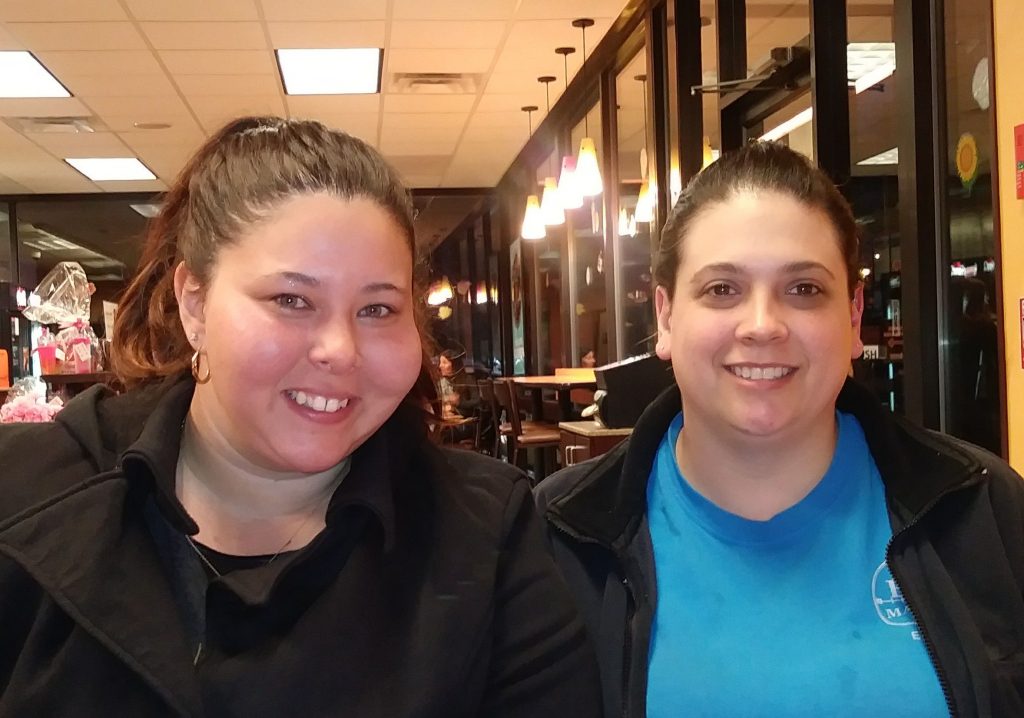“I was the fat girl complaining about back pain,” said Becca Minardi, 24, of Longmeadow about the early symptoms of her polycystic ovarian syndrome (PCOS). Diagnosed just six months ago, Minardi feels as though doctors didn’t take her seriously before her diagnosis. She believes she fell victim to what she calls “the stigma of women’s health.”
PCOS affects between 8 and 20 percent of reproductive-age women but many don’t know that they have it. According to the federal Office on Women’s Health, PCOS consists of a “hormonal imbalance and metabolism problems that may affect [a woman’s] overall health and appearance.” The symptoms of PCOS, particularly around infertility and physical appearance, are sensitive subjects for many women who may not bring them up with their healthcare provider. Women with the disorder may feel that their symptoms aren’t serious enough to speak to a doctor about or that they are not a medical issue.
“I think that talking about concerns about fertility, hair patterns, and more personal symptoms can be more challenging for both the individual and their healthcare provider,” said Dr. Matthew Spitzer, an endocrinologist in Easthampton, “But it’s something that I think we could do better on and I think it’s important that we try.”
Spitzer said that because PCOS is diagnosed by testing for other things and ruling them out, it is not an exact science. “There is a little bit of uncertainty, a little bit of judgment.”
Many of the symptoms of PCOS are often explained away by other causes. Weight gain caused by the disorder is often attributed to gaining “the freshman 15” in college, which is about the same time many PCOS sufferers begin to see symptoms. Back pain can then be attributed to being overweight. What’s more, the practice of giving teen girls birth control to regulate their menstrual cycles can make the diagnosis of PCOS harder because birth control mitigates some of the symptoms.
PCOS is a disorder with many faces. Aside from infertility and the ovarian cysts that give the disorder its name, the federal Office of Women’s Health notes symptoms can include: weight gain and difficulty losing weight due to insulin resistance, acne, thinning hair on the scalp, irregular periods, and acanthosis nigricans, a condition that causes areas of skin to darken and thicken. Not all women, however, have all the symptoms.
“Looking back, I was always a little bit thicker, but I noticed I started gaining weight around 18 years old,” said Minardi, who currently weighs 210 pounds. In addition to severe lower back pain and weight gain, Minardi’s PCOS has caused thinning hair, and she believes has contributed to her depression.
“It was validating,” Minardi said of her diagnosis after feeling blown off by some of her doctors. “I try to lose weight and now it makes sense. I’m not crazy, there’s a name for this.”
When 32-year-old Amy Jean Hersey, a machinist from Palmer, began having intense pain in her lower back at age 19, she assumed it was her kidneys. She hadn’t had her period for about six months but didn’t think the two problems were connected. The doctor ruled out kidney problems and performed an internal ultrasound.
“That’s when they found a bunch of tiny cysts on both of my ovaries,” said Hersey. Hersey was diagnosed with PCOS.
After Hersey and her husband tried and failed for several years to get pregnant, her primary care physician sent her to an endocrinologist and a dietician. She was told to lose 50 of her 180 pounds. The irony is that weight loss is a struggle for women with PCOS.
“You try so hard to lose weight,” said Hersey. She said people looked at her being overweight and assumed it was her fault. Hersey was prescribed Metformin, a medication that has not been approved by the FDA as a treatment for PCOS, but is often prescribed off-label to help women regulate insulin and lose weight.
Eventually, Hersey was put on Clomid, a drug that increases the levels of hormones essential for ovulation, which led to her becoming able to be pregnant. She gave birth to a son, now 7 years old.
Around the time of her diagnosis, Hersey had experienced another of the common PCOS symptoms, extra facial and body hair, known as hirsutism. Her hirsutism lessened markedly throughout her 20s but has come back in the past year, more severe than ever.
“I feel like everyone is looking at me,” said Hersey, who now has to shave every other day to keep on top of the hair that grows on her jawline and under her chin. “People judge so much,” she said with emotion.
Hersey’s cousin, Angela Hall, 28, of Palmer also has PCOS. Hall’s experience has been very different from that of Hersey. Hall hasn’t struggled with hirsutism; instead, her battle has been with infertility. Diagnosed six years ago, Hall and her husband have been struggling to have a baby for five years.
“I’ve done Clomid, artificial insemination, and three rounds of IVF,” said Hall. IVF, or in vitro fertilization, is a process in which eggs are removed from the woman, fertilized in a lab, and reinserted into the womb. None of these methods have been successful.
Last year alone, Hall spent $5,000 on fertility treatments despite her insurance covering the bulk of the cost.
A 2015 article in the journal Clinics (Sao Paulo) reported PCOS is the cause of 80 percent of infertility cases in which ovulation is problematic and between 70 and 80 percent of women with PCOS experience infertility.
Minardi and Hall have each experienced a ruptured cyst. “It’s the worst pain you’ve ever felt,” said Hall. Minardi described it as a stabbing pain at the site of her ovary that lasted 30 seconds with soreness for days afterward.
Minardi found PCOS support groups a few weeks after her diagnosis. “The support groups have been really welcoming,” she said. “They helped a lot in the beginning. I know what to expect now.”
The future for these women with PCOS is full of questions. Hall said she is concerned because the risk of certain cancers is higher among those with PCOS. All three women worry about developing diabetes, a common disease in women with PCOS due to increased insulin resistance. Hall had become pre-diabetic, but through diet and exercise, she has since gotten her insulin under control.
There are treatments for PCOS. Though there is no cure, the symptoms can be managed. The Mayo Clinic recommends weight loss through a healthy diet and moderate exercise. Birth control can help regulate menstrual cycles for women who do not wish to become pregnant.
For fertility problems, a doctor may prescribe Clomid or a similar drug. IVF is another common treatment for PCOS caused infertility. If nothing else has worked, there is “laparoscopic electrocoagulation,” a surgical option detailed in the Medical Journal of Armed Forces India, that can help the body ovulate normally.
Hersey and Hall have begun taking essential oils to combat their symptoms. It’s possible they’re onto something as spearmint essential oil has been shown in at least one study to reduce levels of testosterone, body weight, and cysts in laboratory rats.




